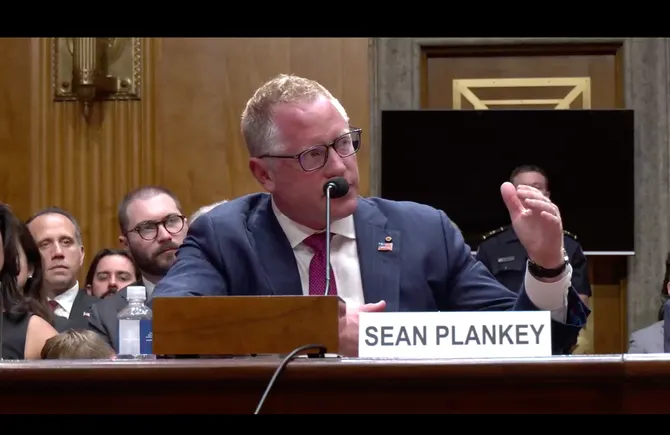Quick Takeaways
-
Nomination Confirmation: Sean Plankey, nominated by Trump to lead the Cybersecurity and Infrastructure Security Agency (CISA), faced scrutiny over election security and an expiring information-sharing law during his Senate confirmation hearing.
-
Workforce and Budget Concerns: Plankey acknowledged significant workforce cuts and budget reductions for CISA in Trump’s 2026 spending proposal, emphasizing the need for reorganization and support.
-
Election Security Stance: Under questioning, Plankey stated he hadn’t reviewed cybersecurity aspects of the 2020 election, leading to criticism from Sen. Blumenthal for undermining the credibility of election security.
- Focus on Cybersecurity Initiatives: Plankey expressed support for the Cybersecurity Information Sharing Act and continued funding for state and local cybersecurity grants, while intending to limit CISA’s role in combating online disinformation.
Importance of Election Security
Senators rigorously questioned Sean Plankey, the nominee for the Cybersecurity and Infrastructure Security Agency (CISA), during a recent confirmation hearing. They focused on election security and the impact of budget cuts on the agency. While Plankey has extensive experience, he faced scrutiny for not reviewing the cybersecurity measures from the 2020 election. As Senator Richard Blumenthal pointed out, undermining public confidence in the electoral system jeopardizes national trust at a critical time. Plankey responded by stating that his primary role would be to help state and local officials secure their technology, emphasizing a practical approach to election security.
Additionally, the looming expiration of vital laws adds urgency to CISA’s mission. During the hearing, Plankey supported the continued funding for the Cybersecurity Information Sharing Act and the State and Local Cybersecurity Grant Program. These initiatives facilitate collaboration among businesses and government, which is essential for protecting against threats. Plankey highlighted that rural areas also demand attention and resources, showcasing a commitment to serving all Americans.
Focus on Core Missions
Plankey’s nomination hinged on his ability to steer CISA back to its core responsibilities. Senate Republicans questioned how he would repair the agency’s reputation after claims of censorship during the last election cycle. Plankey assured them that CISA’s role would not include monitoring or determining the truth on social media. Instead, he aims to refocus efforts on securing federal operations and critical infrastructure. He stated, “If I am confirmed, CISA will not be a part of that work.”
Plankey’s promise to maintain a limited role in election security aligns with ensuring the agency focuses on protecting the technology needed for secure elections. This distinction is crucial, especially as misinformation remains a pressing concern. As CISA navigates this complex landscape, its effectiveness will largely depend on how well it can secure essential systems while fostering trust among citizens and stakeholders. The upcoming Senate vote will be a pivotal moment for both Plankey and the agency he hopes to lead.
Expand Your Tech Knowledge
Stay informed on the revolutionary breakthroughs in Quantum Computing research.
Stay inspired by the vast knowledge available on Wikipedia.
Cybersecurity-V1

